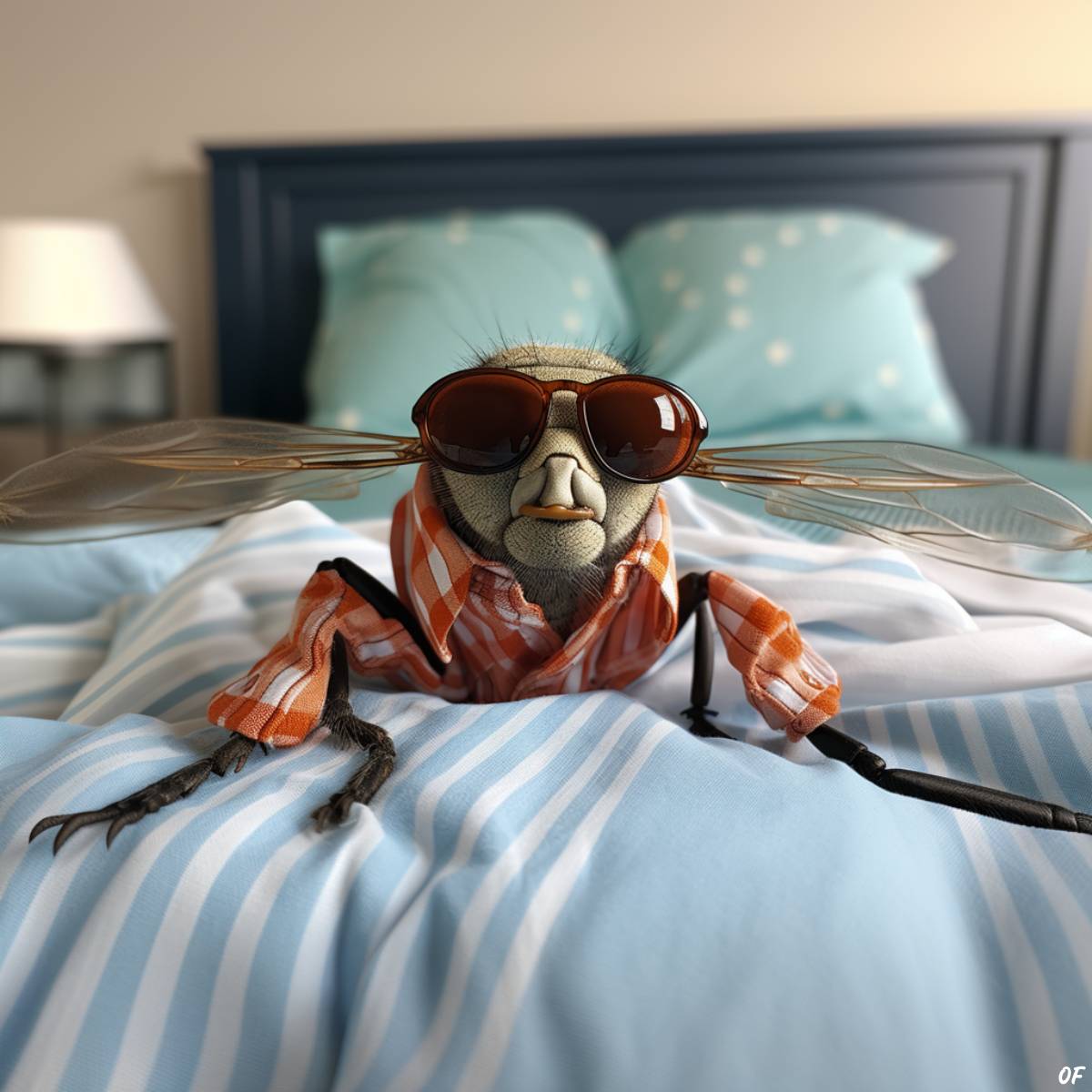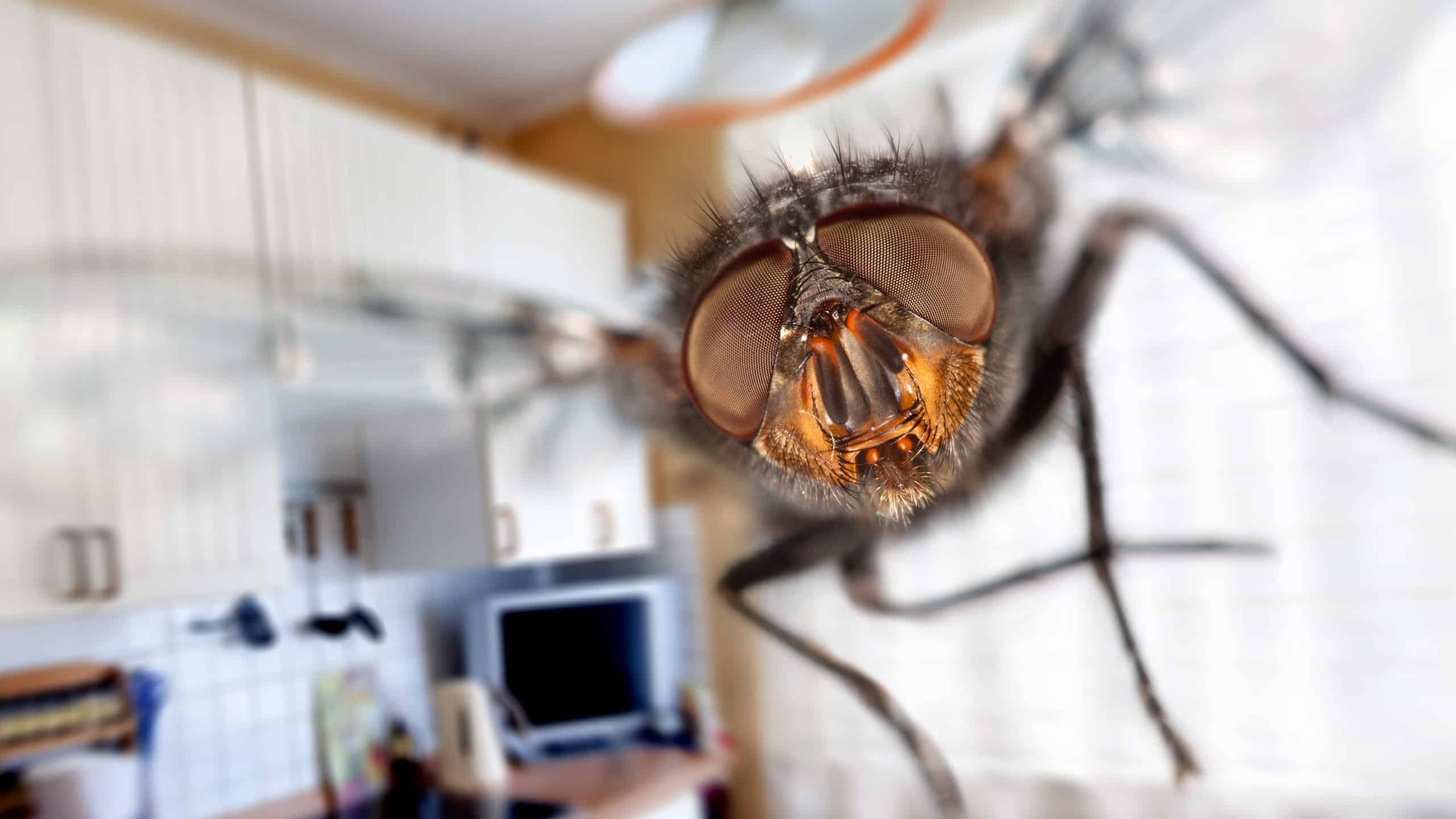So here’s the deal, folks. Have you ever wondered whether flies actually sleep? You know those pesky little creatures buzzing around your kitchen or landing on your dinner plate? Well, it turns out they do catch some ZZZs, but their version of sleep is way different from ours. Let’s dive into this fascinating world of fly slumber and uncover some surprising facts about these tiny critters. You won’t believe what science has to say about it!
Now, before we get all scientific, let’s level-set. Flies, just like humans, need rest to function properly. But don’t confuse their downtime with our cozy nights under the covers. Their “sleep” is more like a state of inactivity where they’re not moving or responding much to stimuli. Sounds kinda boring, right? Not so fast—there’s a lot more to it than meets the eye.
And hey, if you’re here wondering, “Do flies sleep?” you’re in the right place. We’re going to break it down step by step, from the biology of fly sleep to why it matters for us humans. Buckle up because this is gonna be a wild ride into the microscopic world of insect rest!
What Exactly Is Fly Sleep?
Alright, let’s get technical for a sec. When we talk about fly sleep, we’re referring to a state of reduced activity and responsiveness. It’s not exactly like human sleep, but it shares some similarities. For instance, flies become less reactive to light and sound during their resting periods. They also tend to stay in one spot, conserving energy until they wake up again.
Here’s a fun fact: scientists have found that fruit flies, one of the most studied species, exhibit behaviors that closely resemble sleep. They even have specific neurons that regulate this resting state, much like our brain controls our sleep cycles. Crazy, right? But what does this mean for the broader insect world? That’s where things get interesting.
How Do Scientists Study Fly Sleep?
Studying fly sleep isn’t as easy as sticking them in a lab and watching them snooze. Researchers use advanced techniques to monitor their behavior over time. They track movement, measure brain activity, and analyze how external factors affect their rest patterns. One popular method involves placing flies in small tubes connected to motion sensors. If the fly doesn’t move for a certain period, it’s classified as “sleeping.”
- Nicoletta Ruhl The Rise Of A Modernday Icon
- Emily Carriveau Divorce The Untold Story Behind The Split
But here’s the kicker—flies don’t have eyelids, so they can’t close their eyes like we do. Instead, they rely on changes in posture and behavior to signal when they’re resting. Imagine trying to nap without being able to shut your eyes—talk about a challenge!
Why Do Flies Sleep?
You might be thinking, “Why do flies even need sleep? They’re so small!” Turns out, sleep is crucial for almost all living organisms, including insects. During their resting periods, flies repair damaged cells, process information, and restore energy. It’s like a mini-reset button for their tiny bodies.
And here’s another mind-blowing discovery: sleep deprivation in flies can lead to serious health issues, just like in humans. Studies show that sleepless flies have weakened immune systems, impaired memory, and shorter lifespans. So next time you swat one away, remember they’re just trying to survive too!
What Happens When Flies Don’t Sleep?
Okay, so what happens if a fly pulls an all-nighter? Not much good, let me tell you. Sleep-deprived flies struggle with basic tasks like flying, finding food, and avoiding predators. They also become more irritable and aggressive, which isn’t ideal when you’re already dealing with swat-happy humans. Plus, their cognitive abilities take a nosedive, making it harder for them to learn and adapt to new environments.
Interestingly, researchers have discovered that some flies can “bounce back” from sleep deprivation by taking longer naps later on. This phenomenon, known as sleep rebound, shows how important rest is for maintaining normal functioning. Who knew flies were such resilient little creatures?
Do All Flies Sleep the Same Way?
Not all flies are created equal when it comes to sleep. Different species have unique resting patterns based on factors like size, habitat, and lifestyle. For example, houseflies typically rest during the night, while fruit flies prefer short naps throughout the day. Some species even enter a state called torpor, where their metabolic rate slows down significantly to conserve energy.
Another factor influencing fly sleep is temperature. Warmer climates tend to make flies more active, while cooler temperatures encourage longer resting periods. This adaptation helps them survive in diverse environments, from tropical rainforests to freezing tundras. Nature truly is amazing, isn’t it?
How Long Do Flies Sleep?
Now let’s talk numbers. On average, flies spend about 6-8 hours a day sleeping, depending on the species and environmental conditions. Fruit flies, for instance, usually nap for around 4-6 hours during the day and another 4-6 hours at night. Houseflies, on the other hand, prefer longer stretches of rest, often lasting up to 12 hours.
But wait, there’s more! Did you know that some flies can sleep while standing upside down? Yep, they’ve mastered the art of sleeping in weird positions. Their lightweight bodies and strong legs allow them to cling to surfaces without falling off, even during deep slumber. How’s that for multitasking?
Can Flies Dream?
This is where things get really speculative. While we don’t know for sure if flies dream, scientists believe it’s possible. After all, they have brains capable of processing complex information, so why not? Studies suggest that flies experience rapid eye movement (REM)-like phases during sleep, which could indicate dreaming activity.
Of course, we’ll never know exactly what a fly dreams about. Maybe they’re reliving their latest feast or practicing evasive maneuvers against swatters. Either way, the idea of tiny insects having vivid dreams is both hilarious and fascinating.
What Do Flies Dream About?
Alright, let’s have some fun with this. If flies could talk, what would they say about their dreams? Would they share stories of buzzing through fields of flowers or escaping from hungry spiders? Or maybe they’d reveal deep philosophical insights about the meaning of life (or at least the meaning of being a fly).
One thing’s for sure—flies probably don’t dream about world domination. Their priorities are much simpler: eat, reproduce, and avoid getting squished. So next time you see a fly resting peacefully, take a moment to imagine the adventures playing out in its tiny brain. It’s a thought worth pondering!
What Can We Learn From Fly Sleep?
Believe it or not, studying fly sleep has big implications for human health. By understanding how insects regulate their rest cycles, scientists hope to uncover new treatments for sleep disorders like insomnia and sleep apnea. Flies share many genetic similarities with humans, making them excellent models for research.
For example, researchers have identified specific genes linked to sleep regulation in both flies and humans. This breakthrough could lead to personalized medicine tailored to individual sleep needs. Imagine a future where everyone gets the perfect amount of rest, no matter their age or lifestyle. Sounds pretty awesome, right?
Applications in Medicine and Technology
The study of fly sleep isn’t just limited to biology. Engineers are using this knowledge to develop smarter robots and AI systems. By mimicking the way flies process information during sleep, they aim to create machines that learn faster and adapt better to changing environments. This could revolutionize fields like autonomous vehicles, healthcare, and space exploration.
And let’s not forget the environmental impact. Understanding fly behavior can help us develop better pest control methods that target harmful species without harming beneficial ones. It’s a win-win for both humans and nature.
Common Misconceptions About Fly Sleep
There are plenty of myths floating around about fly sleep, and it’s time to set the record straight. Contrary to popular belief, flies don’t just “buzz around all day” without resting. They need sleep just as much as we do, albeit in shorter bursts. Another misconception is that flies don’t dream—while we can’t prove it yet, the evidence suggests otherwise.
Then there’s the idea that flies can function indefinitely without sleep. Wrong again! Just like humans, flies suffer when they don’t get enough rest. Their performance declines, and their overall health deteriorates. So next time someone tells you flies don’t sleep, you can confidently correct them.
Debunking Myths About Fly Behavior
Let’s tackle a few more myths while we’re at it. Some people think flies only sleep during the night, but that’s not true for all species. Others believe flies are immune to sleep deprivation, which is far from reality. And don’t even get me started on the whole “flies don’t have brains” thing—that’s just plain wrong.
The truth is, flies are incredibly complex creatures with sophisticated nervous systems. They may not look like much, but they’re capable of amazing feats when given the chance. So before you dismiss them as mere pests, remember that they’re part of a vast ecosystem we’re still learning about.
How Can You Help Flies Get Better Sleep?
Okay, here’s the deal. While we can’t exactly tuck flies into bed at night, we can create environments that promote healthy sleep patterns. For starters, avoid using harsh chemicals and pesticides that disrupt their natural rhythms. Instead, opt for eco-friendly solutions that target specific problem areas.
Another tip is to keep your home clean and free of food scraps. Flies are attracted to dirty environments, so maintaining hygiene is key to reducing their presence. And if you really want to help, consider planting flowers and plants that support beneficial insect populations. Every little bit counts!
Final Thoughts on Fly Sleep
So there you have it, folks. Flies do sleep, and it’s a vital part of their daily routine. By understanding their resting patterns, we can gain valuable insights into the world of insects and how they interact with their surroundings. Plus, who doesn’t love a good science story?
Conclusion
In conclusion, the question “Do flies sleep?” has a definitive answer: yes, they absolutely do! From the intricacies of their resting behavior to the potential applications in medicine and technology, there’s so much to explore in this field. So the next time you encounter a fly, take a moment to appreciate the complexity of its existence. Who knows? You might just learn something new about yourself in the process.
And hey, don’t forget to share this article with your friends and family. Spread the word about fly sleep and help others discover the wonders of the insect world. Together, we can make science cool again—one buzzing creature at a time!
Table of Contents
- What Exactly Is Fly Sleep?
- How Do Scientists Study Fly Sleep?
- Why Do Flies Sleep?
- What Happens When Flies Don’t Sleep?
- Do All Flies Sleep the Same Way?
- How Long Do Flies Sleep?
- Can Flies Dream?
- What Do Flies Dream About?
- What Can We Learn From Fly Sleep?
- Applications in Medicine and Technology
- Common Misconceptions About Fly Sleep
- Debunking Myths About Fly Behavior
- How Can You Help Flies Get Better Sleep?
- Final Thoughts on Fly Sleep
- Conclusion
- Thomas Beaudoin Accident The Untold Story Behind The Incident
- Hailey Welch Nude Unveiling The Truth Behind The Controversy


